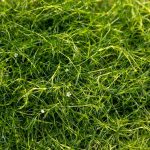A man, intrigued by the array of products derived from petrochemicals that surround us in our daily lives, set out to unravel the mysteries behind these essential components. From the plastics in our electronics to the fabrics in our clothing, petrochemicals play a crucial role in modern society. In his quest for knowledge, he uncovered the fascinating origins and intricate production processes that transform raw materials into the versatile products we rely on. Join us as we delve into the world of petrochemicals, exploring their sources, production methods, and the diverse range of products they create.
What Are Petrochemicals and Where Do They Come From?
Petrochemicals are organic compounds derived from petroleum or natural gas that serve as the foundation for a wide range of products and industries. But what exactly are they, and how do they contribute to our daily lives?
Definition and Scope:
Explore the definition of petrochemicals and their various forms, including olefins, aromatics, and intermediates. Understand the role of petrochemicals in manufacturing plastics, fibers, solvents, and other essential products.
Applications and Industries:
Learn about the diverse industries that rely on petrochemicals, from automotive and construction to pharmaceuticals and agriculture. Discover how petrochemicals are used to create everything from packaging materials and synthetic textiles to fertilizers and pharmaceuticals.
How Are Petrochemicals Produced?
The production of petrochemicals involves several key processes, including:
- Cracking: The process of breaking down larger hydrocarbon molecules into smaller, more useful molecules. This is typically done through thermal cracking or catalytic cracking, which involve the use of heat and catalysts, respectively.
- Reforming: The process of rearranging the molecular structure of hydrocarbons to produce more valuable products such as gasoline and aromatics.
- Polymerization: The process of combining small molecules (monomers) to form larger molecules (polymers) used in the production of plastics and synthetic fibers.
- Oxidation: The process of adding oxygen to hydrocarbons to produce chemicals such as alcohols and acids used in various industries.
What Are the Key Petrochemical Products?
Petrochemicals are used to produce a wide range of products, including:
- Plastics: Petrochemicals are the primary raw materials used in the production of plastics, which are used in countless applications, from packaging to construction.
- Synthetic Fibers: Petrochemicals are used to produce synthetic fibers such as polyester, nylon, and acrylic, which are used in clothing, carpets, and textiles.
- Fertilizers: Petrochemicals are used to produce fertilizers, which are essential for modern agriculture and food production.
- Pharmaceuticals: Petrochemicals are used in the production of pharmaceuticals, including medicines, vitamins, and other healthcare products.
- Cleaning Products: Petrochemicals are used in the production of cleaning products such as detergents, soaps, and disinfectants.
What Is the Role of Chemicals Suppliers in Pakistan in the Petrochemical Industry?
Chemicals suppliers in Pakistan play a crucial role in the petrochemical industry by providing a wide range of petrochemical products to manufacturers and consumers. These suppliers source, produce, and distribute petrochemicals to various industries, including plastics, textiles, agriculture, and healthcare. Chemicals suppliers in Pakistan ensure a steady supply of high-quality petrochemical products to meet the demands of a diverse range of industries, contributing to the growth and development of the economy.
What Factors Should You Consider When Choosing a Chemicals Supplier in Pakistan?
When selecting a chemicals supplier in Pakistan, consider the following factors:
- Product Quality: Ensure the supplier offers high-quality petrochemical products that meet international standards and specifications.
- Supply Chain Reliability: Choose a supplier with a reliable supply chain and distribution network to ensure timely delivery of products.
- Technical Support: Look for a supplier that offers technical support and expertise to help you select the right petrochemical products for your specific needs.
- Environmental Stewardship: Select a supplier committed to environmental stewardship and sustainability, including responsible sourcing and production practices.
Avon Commercial’s Range of Petrochemical Products
As a leading chemicals supplier in Pakistan, Avon Commercial offers a comprehensive range of petrochemical products tailored to the needs of various industries. Here are some of the petrochemical products available from Avon Commercial:
PTA (Purified Terephthalic Acid):
Avon Commercial offers high-quality PTA, a key raw material in the production of polyester fibers, films, and packaging materials. Our PTA is meticulously purified to ensure exceptional purity and consistency, making it the preferred choice for polyester manufacturers worldwide. With superior chemical properties and excellent processability, our PTA enables the production of high-performance polyester products that meet the stringent requirements of various industries, from textiles to packaging.
MEG (Monoethylene Glycol):
Elevate your products with Avon Commercial’s premium MEG, a versatile chemical used in the production of polyester resins, fibers, and films. Our MEG is meticulously refined to deliver exceptional purity and performance, ensuring superior melt stability, clarity, and mechanical properties in polyester products. Whether you’re manufacturing bottles, textiles, or automotive parts, our MEG enables you to create durable and high-quality products that meet the diverse needs of your customers.
DEG (Diethylene Glycol):
Avon Commercial presents top-grade DEG, a vital component in the production of polyester resins, solvents, and plasticizers. Our DEG is carefully processed to meet the highest quality standards, offering excellent solubility, viscosity control, and thermal stability in various applications. Whether you’re formulating adhesives, antifreeze, or personal care products, our DEG ensures superior performance and reliability, making it the preferred choice for manufacturers across industries.
TEG (Triethylene Glycol):
Explore limitless possibilities with Avon Commercial’s premium TEG, a versatile chemical used in the production of polyester fibers, plasticizers, and gas dehydration agents. Our TEG is meticulously synthesized to deliver exceptional purity, moisture absorption, and thermal stability, making it the ideal choice for demanding applications in textiles, plastics, and natural gas processing. With superior performance and reliability, our TEG empowers manufacturers to create innovative and sustainable solutions that meet the evolving needs of the market.
HDPE (High-Density Polyethylene):
Avon Commercial offers high-quality HDPE, a versatile thermoplastic known for its exceptional strength, durability, and chemical resistance. Our HDPE is meticulously produced to meet the stringent requirements of various industries, offering superior impact strength, moisture resistance, and environmental stress crack resistance. Whether you’re manufacturing bottles, pipes, or industrial containers, our HDPE enables you to create reliable and long-lasting products that excel in diverse applications.
Conclusion: Navigating the World of Petrochemicals with Insight
In conclusion, petrochemicals are a vital component of modern industry, providing the building blocks for a wide range of essential products. From plastics and synthetic fibers to fertilizers and pharmaceuticals, petrochemicals play a crucial role in our daily lives. By understanding the origins and production processes of petrochemicals, as well as the role of chemicals suppliers in Pakistan, we gain valuable insight into this complex and fascinating industry. So, navigate the world of petrochemicals with insight and discover the endless possibilities they offer for innovation, sustainability, and economic growth.
Don’t forget to check out the other interesting articles on this website.











